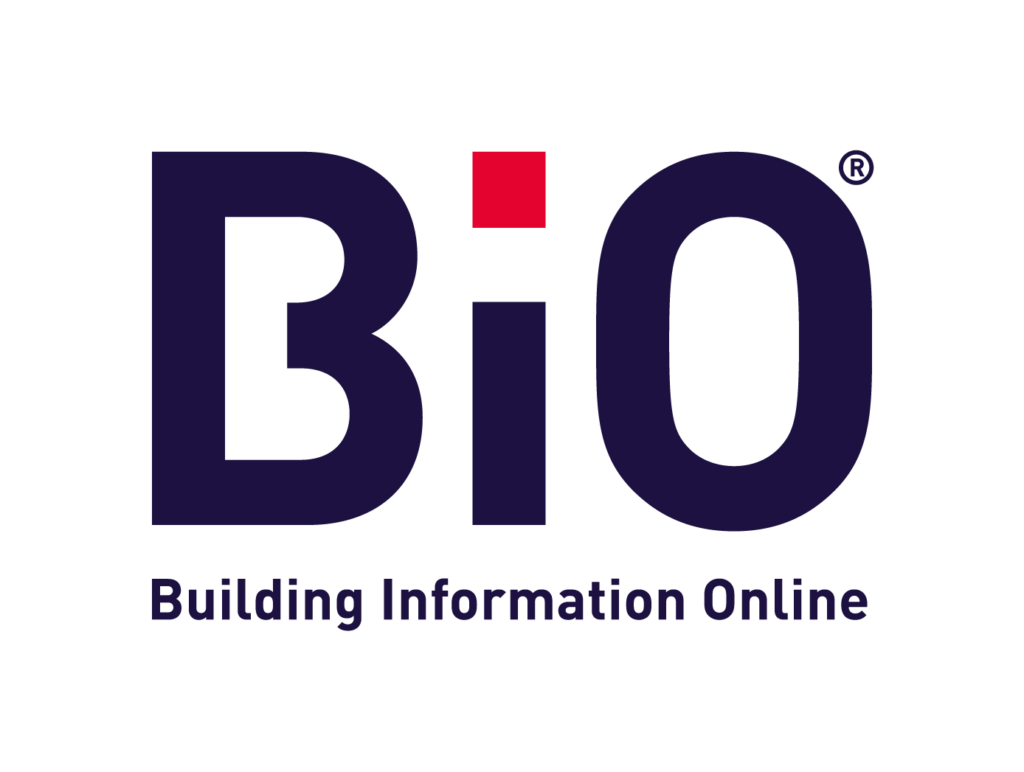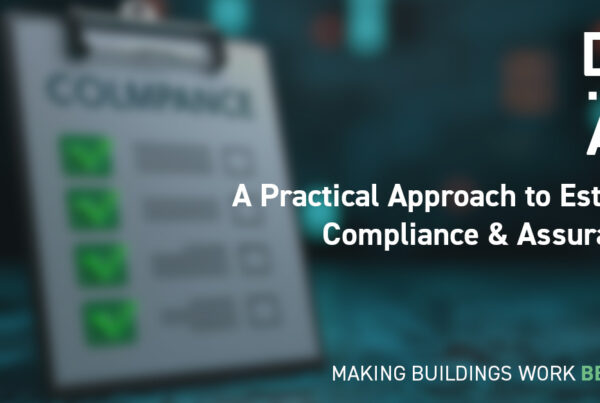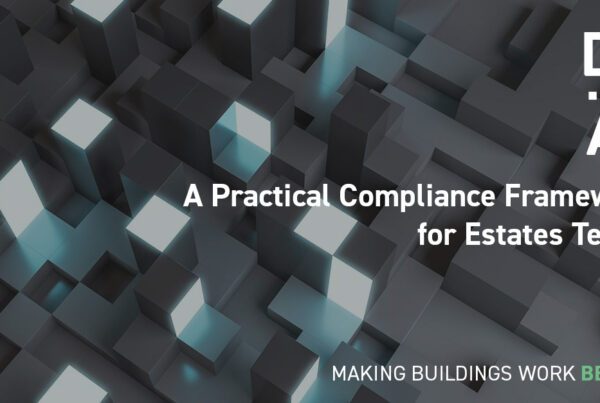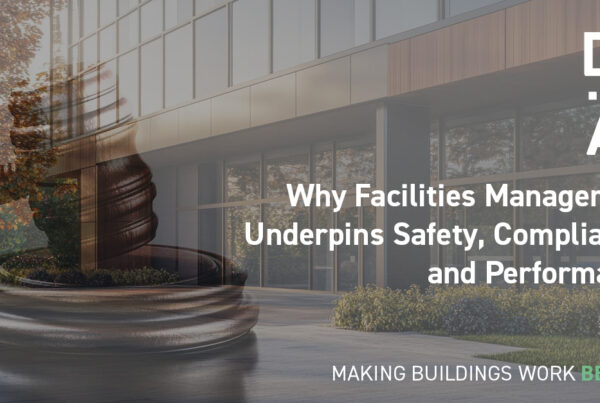
Solving the Facilities Management Skills Gap: Our Three R’s Approach
Finding great people is hard. Keeping them? Even harder. Here’s how we’re using the three R’s to build a team that sticks around and stands out.
The Changing Face of FM: Why Talent Strategy Is the Key to Future Success
The facilities management (FM) industry in the UK is undergoing rapid transformation. As demand grows, so do the challenges — from recruiting top talent to retaining skilled professionals. Here’s a closer look at the trends shaping recruitment and retention in 2024 and beyond.
A Facilities Management Market on the Rise
According to the H2 2024 RICS UK Facilities Management Survey, demand for FM services has risen significantly, especially across public sector contracts. This momentum shows no sign of slowing. By 2025, the UK’s FM market is projected to expand from $70.42 billion to $76.43 billion by 2030, driven by a steady compound annual growth rate (CAGR) of 1.65%.
Hiring Gets Tougher
While opportunities are expanding, so is the difficulty in filling them. Around 75% of employers reported difficulty sourcing talent for building operations and maintenance roles in 2024, with over 40% struggling to find candidates for property management. The skills gap is particularly acute in technical and engineering roles, a challenge echoed by CBRE’s recent findings.
But there’s another shift underway: facilities managers are becoming increasingly empowered by data and digital tools, boosting their decision-making capabilities and making the role more strategic than ever.
Skills Development Takes Centre Stage
To tackle this growing talent gap, organisations are investing heavily in upskilling and reskilling initiatives. Apprenticeship schemes are heavily gaining traction, particularly to attract younger talent and equip them with hands-on experience in real FM environments. These programs not only close technical gaps but also futureproof the workforce.
Boosting Retention Through Experience
Retention rates are holding relatively strong. Over half of surveyed FM organisations reported a net increase in headcounts in late 2024, and modest growth is expected to continue into 2025.
The focus? Creating workplaces where people want to stay.
Businesses are doubling down on well-being initiatives, from mental health support to flexible working arrangements. Investing in thoughtfully designed, modern workspaces is also helping enhance the employee experience and increase satisfaction.
Inclusion and Belonging Matter
There’s been a significant push towards diversity and inclusion in recruitment and retention strategies. Employers are embracing inclusive hiring practices and building employee resource groups and support networks to foster belonging and engagement. It’s a shift that not only benefits employees, it strengthens organisations.
Innovation Drives Attraction
Finally, technology is reshaping FM roles. The adoption of AI and automation is not only streamlining operations but also helping reduce repetitive tasks, making roles more appealing to new generations of workers. Meanwhile, data analytics is becoming a powerful tool in workforce management, offering valuable insights to optimise performance and pinpoint development needs.
As the FM industry evolves, companies must stay agile, prioritising not just recruitment but retention, culture, and innovation. The road ahead is challenging, but with the right strategies in place, the opportunities for growth and improvement are enormous.
Recruitment: Building a Facilities Management Workforce That Sticks — and Stands Out
“It used to be about finding any job. Now candidates want the right job.”
The facilities management talent landscape is shifting, and so too must the way we approach recruitment. According to DMA Group’s Talent Acquisition Manager, Louise Kitcatt, and Wendy Bennett, COO Maintenance, the challenge is no longer just finding people — it’s about standing out in a market where candidates hold the power.
A Competitive Market with Positive Momentum
“There’s been a positive shift,” says Louise, “but the market is still incredibly competitive.
“In fact, 89% of UK businesses were actively recruiting in Q3 2024, up from 85% the previous quarter — and a full 9% higher than the same period in 2023. The message is clear: opportunities are growing, but so is the competition for great people.”
Attracting Talent in a Job Seeker’s Market
One of the biggest shifts Louise has seen is a fundamental change in candidate behaviour. “It used to be about finding any job. Now candidates want the right job. It’s a job seekers’ market, and that means we have to work harder to show why they should choose us.”
“We focus on strategies that go well beyond the job description,” says Louise. “We know exactly what we’re looking for, not just in terms of technical skills, but also attitude and cultural fit. It’s about finding people who align with who we are. We’re committed to fair pay, which is why we benchmark salaries annually and aim to sit in the top quartile of the market. But more than that, we’re not just offering jobs, we’re offering long-term, meaningful careers where people can grow and truly make a difference.”
Candidates Want More Than Just a Payslip
Today’s candidates are increasingly motivated by quality of life. The traditional “live to work” mentality is being replaced by one that prioritises balance, purpose, and well-being. While salary still matters, it’s not the only deciding factor.
“People want to feel good about where they work — and how it fits into the rest of their lives,” says Louise.
Inclusivity by Design
When it comes to attracting diverse candidates across technical, operational, and support roles, intentionality is key. Wendy explains that building an inclusive workforce requires action at every stage of the recruitment journey:
“Creating a truly inclusive recruitment process means being intentional at every step — from the words we use to the spaces we create. We pay close attention to how we communicate, whether it’s in the language of our job descriptions or the structure of our interviews, we aim to make every touchpoint welcoming and accessible.
“But inclusivity doesn’t stop with outreach. We’re also committed to broadening our talent pool by actively building partnerships with educational institutions, professional networks, and community organisations. This helps us connect with individuals from underrepresented backgrounds who may not have traditionally seen themselves in facilities management roles.
“Most importantly, we recognise that recruitment is only the beginning. It’s not enough to attract diverse talent, we must also ensure that our people feel they belong once they’re through the door. We want people to see themselves reflected in our culture and feel confident that their background and perspective are valued,” says Wendy. “Creating an inclusive environment where everyone can thrive is what makes a lasting difference.”
Culture and Employer Brand: Why It All Matters
“We know that our culture is our strongest recruiting tool. Sometimes, behavioural competencies and a willingness to grow are more important than formal qualifications,” says Louise.
“That’s why we’ve built an Employer Value Proposition (EVP) that reflects who we are, and why people choose to build their careers with us.
“We are more than an FM company,” Louise explains. “We’re a down-to-earth, privately owned SME with over 200 years of history. We combine heritage and stability with innovation and agility. We offer opportunities to make a real difference, not only to in careers but to the communities we serve.”
“I believe that sense of history gives people confidence. In today’s climate, our two centuries of continuous service provide a level of stability and security that few can match. But our age doesn’t mean we’re stuck in the past. Our small business structure allows us to move quickly, embrace change, and create space for individuals to make a meaningful impact without being lost in layers of bureaucracy.
“Respect, teamwork, and quality aren’t just words we throw around; they’re principles that guide how our people work together. It’s a culture shaped by its family roots, where people genuinely support each other and where individual growth is actively nurtured. Career development isn’t reserved for the few; it’s baked into our structure, with recognition and progression part of everyday life.
“Our purpose-driven approach also draws in professionals who want their work to mean something. From achieving carbon neutrality at Rye Hospital to delivering vital services across education and healthcare, employees know their work has a tangible impact on the communities they serve.
“And with a forward-looking mindset, whether through sustainable innovation or our in-house BiO® platform, we strive to attract talent who are excited by the future of FM. It’s this blend of heritage and ambition that makes it such a distinctive and rewarding place to build a career.”
“We’re not just offering jobs — we’re offering long-term, meaningful careers.”
Retention: Creating a Workplace Where People Want to Stay
Learning and development aren’t side projects — they’re central to how DMA supports its people.
For us, retention isn’t just about reducing turnover. it’s about creating an environment where people genuinely want to build their careers.
So, what’s the secret to keeping talent motivated and engaged? According to Louise, it starts with the basics and doing them well. “We focus on promoting a healthy workplace and a positive employee experience. That means offering opportunities for career growth, maintaining a competitive salary structure, and encouraging a strong work-life balance through hybrid and flexible working arrangements. Social events and team engagement also play a vital role in helping colleagues connect beyond their day-to-day tasks.
“One of DMA’s greatest strengths lies in its commitment to career development and upskilling. Engineers are given the chance to expand their knowledge across trades through cross-training opportunities, and there’s a strong emphasis on both internal training and formal apprenticeship programmes. Learning and development aren’t side projects, they’re central to how DMA supports its people.
“We also prioritise promoting from within,” Louise explains. “We know that when people feel stuck or don’t see room to grow, they’re more likely to look elsewhere. That’s why we make sure development pathways are visible and accessible. Regular salary reviews help reinforce a culture of fairness and recognition, further supporting long-term satisfaction.”
Feedback from departing employees has also proven valuable. “One of the most common things we hear is that people would consider coming back to DMA in the future,” Louise says. “And when we ask what they enjoyed most about working here, the answer is almost always the same; the people.”
That sense of connection is more than anecdotal. While the UK’s average job tenure currently stands at 5.4 years, DMA closely aligns with this national benchmark, with more than one in three team members having stayed for five years or more. It’s a statistic that reflects more than just employee longevity; it signals a workplace culture built on respect, opportunity, and meaningful support.
At its core, DMA’s approach to retention is about nurturing careers, not just filling roles. By investing in professional growth and building a values-led environment where people feel they belong, DMA enables its team to thrive, shaping their future while building the future of the business.
Recognition: Making People Feel Seen, Valued, and Proud
Recognition is essential — it helps people feel valued, boosts engagement, and even drives productivity.
Recognising our people within our group is more than a gesture, it’s a fundamental part of how we shape a positive, motivated culture.
“Recognition is essential,” says Louise, “It helps people feel valued, boosts engagement, and even drives productivity. When individuals and teams see their efforts acknowledged, it sends a strong message across the business; that what they do matters.”
From weekly internal communications that highlight individual and team achievements, to our end-of-year and summer parties where we celebrate outstanding contributions, DMA makes time to say thank you. But it doesn’t stop there.
“We’ve developed both formal and informal schemes to make sure great performance never goes unnoticed,” explains Wendy. “Customer feedback plays a big part. If a customer takes the time to send in praise, we make sure it’s heard and recognised, not just with a personal note from our senior leadership team, but also through our Reward and Recognition Scheme, where individuals receive vouchers and a write-up in the staff newsletter.
“Our engineers, who work on the front lines of service delivery, are supported through a dedicated performance bonus scheme. Bonuses are awarded quarterly to our highest performers, based on transparent and fair metrics. And we’re continuing to evolve this approach, looking at ways to integrate broader recognition across all departments — including through our annual performance bonuses.”
Recognition, Louise adds, isn’t just about grand gestures. “Sometimes it’s as simple as making a personal call to say thank you. Those small, genuine moments really stick with people. They feel seen, and that feeling matters.”
Wendy agrees. “We also try to connect people’s efforts to the bigger picture. When someone understands how their actions contribute to a successful outcome for a customer, it gives them a sense of pride. It reinforces that what they’re doing is valuable. That clarity, combined with appreciation, lifts engagement across the board.
“Recognition isn’t an afterthought, it’s a key driver of loyalty, morale, and team culture. Because when people know they’re appreciated, they go further. And they stay longer.”
Looking Ahead: Shaping the Future of FM Talent
We’re here to be changemakers — and that means attracting people who are excited to shape the future of FM.
The world of facilities management is evolving fast, and so is the workforce that powers it. With digitisation and sustainability redefining the landscape, DMA is actively adapting its talent strategy to stay ahead of the curve.
“We know things are changing,” says Louise. “But while the tools and technologies evolve, our approach stays rooted in our values. We’re here to be changemakers, and that means attracting people who are not only skilled, but excited by the opportunity to shape the future of FM with us.”
DMA’s forward-thinking strategy focuses on blending innovation with authenticity, with continuing investment in technology, sustainability, and people, knowing that each element is key to long-term success.
For organisations across the sector, Wendy believes the path forward starts with human connection. “My advice is simple: invest in your recruitment and development process but keep it real. Hiring is a two-way street, like a courtship. It’s not just about ticking boxes; it’s about seeing if it’s a good fit, for both sides.”
“Be open, be honest, and genuinely care about the person you’re talking to,” she adds. “Support them, give them space to grow, and they’ll return that investment with loyalty, energy, and better performance.”
When asked to sum up the secret to building a great FM team, Wendy doesn’t hesitate. “It shouldn’t be a secret. The key is passionate, knowledgeable people who care about what they do, want to contribute to something meaningful, and enjoy the journey together.”




